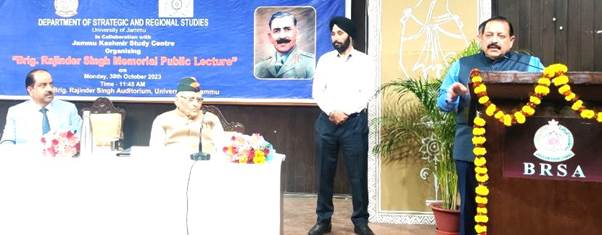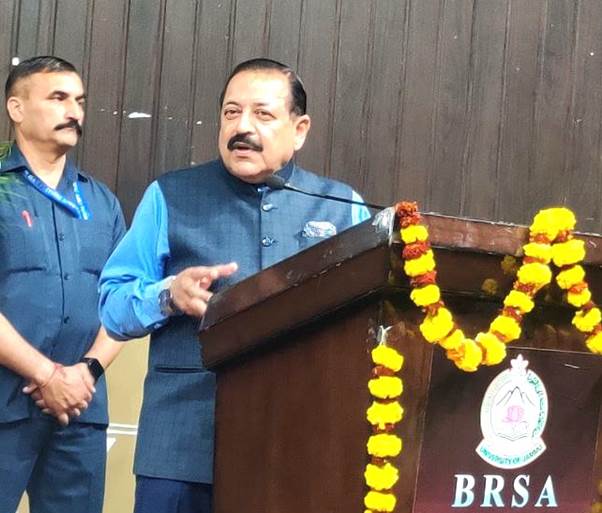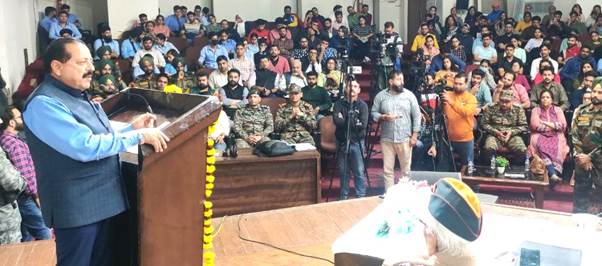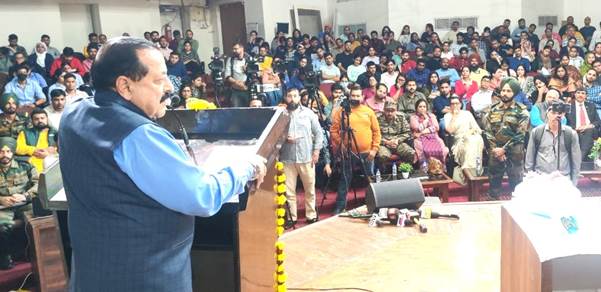Partition gravest blunder in history: Dr Jitendra Singh says common masses were against it
Union Minister of State (Independent Charge) Science & Technology, MoS PMO, Personnel, Public Grievances, Pensions, Atomic Energy and Space, Dr Jitendra Singh today said that the Partition of India was gravest blunder in the recent history of world and a self-styled plan of a few ambitious individuals who allowed themselves to be played in the hands of a divisive design of the British rulers.
The partition, said Dr Jitendra Singh, was vociferously opposed not only by Mahatma Gandhi but also across the sections of masses including many a Muslim intellectuals who constituted the Progressive Writers’ Association. In the aftermath, more than a million people lost their lives and manifold more were rendered homeless in a bloody exchange of populations between India and the newly carved out Pakistan.

Dr Jitendra Singh said, the two-nation theory, which was given as an argument in support of partition, also proved to be misguided as evident from the separation of the then East Pakistan to form Bangladesh.
Addressing the gathering during the ‘Brigadier Rajinder Singh Memorial Public Lecture’ at University of Jammu, Dr Jitendra Singh said, if only the then Prime Minister Jawaharlal Nehru had allowed his Home Minister to handle Jammu & Kashmir in the same manner as Sardar Patel was handling the other princely States of India, the history of Indian subcontinent would have been different and PoJK would have been a part of India.

One of the blunders, said the Minister, was to declare unilateral ceasefire precisely when the Indian Army was about to retrieve back the areas of J&K captured by Pakistan which are now part of PoJK.
The Minister said that Pandit Nehru, despite opposition from Gandhi and others, tacitly allowed Mohd Ali Jinnah’s demand for partition to succeed.

Dr. Jitendra Singh, while appreciating the role of Department of Strategic and Regional Studies, University of Jammu and Jammu-Kashmir Study Centre for organizing such an important function, said that the son of the soil Brigadier Rajinder Singh single handedly fought with the enemy forces and repelled the invaders up to Uri but again the unilateral ceasefire declaration by the then Prime Minister Nehru led to partition of Jammu & Kashmir also. He said that such decisions are still costing India for its land and resources.
Dr. Jitendra Singh, further clarifying, termed the Indus Water Treaty like agreements as under-implemented leading to under-utilization of our own water resources.

The Minister, while elaborating another brunt of the partition, quoted the example of Article 370 which kept Jammu & Kashmir under-developed for decades. He said that this not only antagonised Maharaja Hari Singh but also fanned sentiments of separatism.
Maharaja Hari Singh was never at fault, said Dr Jitendra Singh, and argued that the delay in accession happened on account of dilly-dallying.
The function was presided over by Vice-Chancellor, SKAUST Jammu, Prof. B.N.Tripathi while Brigadier Retired Goverdhan Singh Jamwal was the Guest of Honour.

